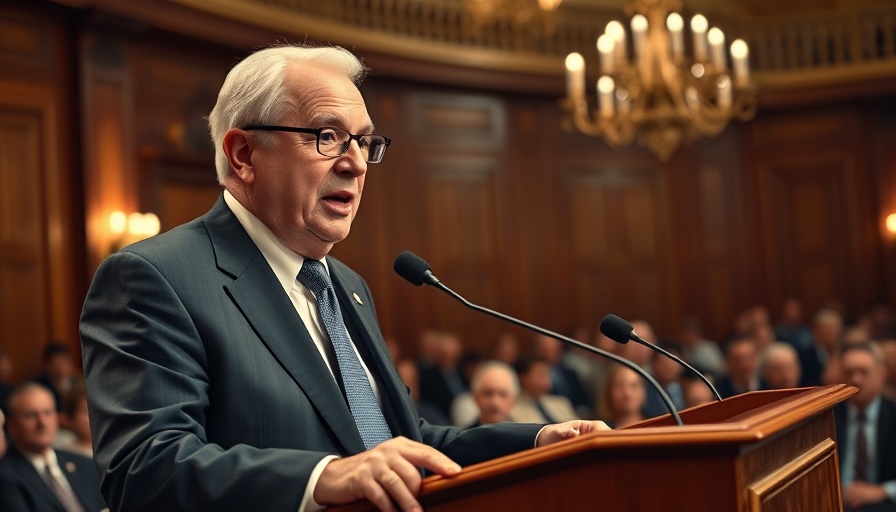
The Complex Landscape of Abortion Attitudes
In today's world, conversations about abortion can stir deep emotions and debates. Many are left wondering, what does the public truly think about this topic? With varying perspectives shaped by culture, faith, and personal experience, it’s vital to dive into how these factors influence opinions on abortion. The challenge lies in recognizing the complexity behind the numbers and opinions people hold.
In 'What does the public actually think about abortion!?' we explore diverse perspectives surrounding abortion, prompting the need for a deeper analysis on our end.
Why Voices Matter: A Spectrum of Opinions
Consider a diverse gathering of individuals, each representing a distinct viewpoint on abortion. For Christians and others who discuss this subject within their communities, conversations can often reflect not just personal beliefs but also shared values taught through years of theology. This reflection showcases the importance of listening not only to the loudest voices but each individual story, as they weave a rich tapestry of understanding around the topic. Whether one agrees or disagrees, these stories often resonate deeply and may even challenge preconceived notions.
Faith and Decisions: The Role of Spiritual Guidance
Many Christians find their beliefs on abortion rooted in scripture, sacred texts, and teachings from pastors. Understanding how these influences guide the opinions of people can help bridge divides. The discussions stemming from churches and religious gatherings foster support systems, where members seek to balance compassion with convictions. For those wrestling with tough choices, having a safe space to express their feelings can foster a healthy dialogue, supporting individuals to explore their beliefs amid uncertainty.
Personal Stories: Shaping Perspectives
The power of personal anecdotes cannot be underrated. Stories shared in community groups and church settings provide valuable insights into the myriad experiences surrounding pregnancy, loss, and faith. Understanding that decisions about abortion can often be intertwined with profound life events reveals the emotional weight behind opinions. Listening to these narratives can demonstrate how factors beyond legalities impact individuals and families — from heartbreaking personal choices to community support systems that either uplift or ostracize.
Counterarguments: Embracing Diverse Perspectives
While many hold firmly to their religious beliefs, it’s essential to recognize there are those within faith communities advocating for broader reproductive rights. Engaging with counterarguments encourages a fuller understanding of what individuals face. By discussing opposing viewpoints, communities can offer a more inclusive approach to complex issues. Conversations must acknowledge the struggles faced by many and highlight how diversity in belief can enrich understanding within a faith-oriented society.
The Future: Trends and Predictions in Public Opinions
As societal norms continue to shift, it’s essential to reflect on how future generations will approach conversations around abortion. Will faith traditions remain steadfast, or will they evolve to meet the changing landscape? Observing these trends can provide insight into both community dynamics and the importance of education in shaping new perspectives. Encouraging open and respectful dialogue about abortion will be crucial for fostering understanding and compassion, especially for younger audiences navigating their moral and ethical choices.
Conclusion: Finding Common Ground
As we navigate the topic of abortion and its societal implications, it's evident that diverse perspectives stem from a place of experience, belief, and understanding. Ultimately, what emerges is a rich discussion that can foster empathy and support in communities. Whether through shared storytelling or respectful dialogue, the journey towards understanding begins when we choose to listen to each other openly. If you found value in this article, consider having those discussions within your community or faith group today.
 Add Row
Add Row  Add
Add 








Write A Comment